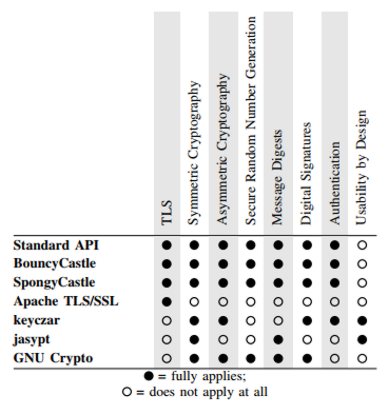| Stack Overflow Considered Harmful? |
| Written by Sue Gee | |||
| Wednesday, 11 October 2017 | |||
|
What proportion of Android apps in the Play store include security-related code snippets copied directly from Stack Overflow? Does the copied code increase or decrease application security? These questions are addressed by a team of researchers from the Fraunhofer Institute for Applied and Integrated Security and the Center for IT-Security, Privacy and Accountability at Saarland University led by Felix Fischer in the paper, Stack Overflow Considered Harmful? The Impact of Copy&Paste on Android Application Security. The results of the team's analysis are alarming: 15.4% of the 1.3 million Android applications analyzed in the study contained security-related code snippets from Stack Overflow. Out of these 97.9% contained at least one insecure code snippet. Using a machine-learning approach Fischer and his colleagues first identified all Android posts on Stack Overflow and then extracted security-related code snippets. A code snippet, which are easily identified by being surrounded by <code> tags was considered security-related if it called to one of the following Java security libraries:
Code snippets that referred to BouncyCastle or SpongyCastle, specially designed for as security libraries for Android, so were snippets for the Apache TLS/SSL package as part of the HttpClient library, which is one of the most used libraries on GitHub, and snippets that referenced keyczar and jasypt two security libraries specifically designed with usability in mind. Finally the analysis searched for snippets that used GNU Crypto. As such snippets are difficult to integrate into Android, this inconvenient alternative was included to provide a contrast. This table summarizes the cryptographic libraries and their features:
Having uncovered over 4000 security-related code snippets, the researchers used supervised learning to train a support vector machine to distinguish between secure and insecure snippets using a conservative labeling scheme that classified only the definitely vulnerable code snippets as insecure, specifically:
Overall processing pipeline: (1) Code extraction; (2) Filtering; (3) Classification; (4) Program dependency graph generation; (5) Clone detection. Having filtered security-related code snippets from Stack Overflow and classified them either as secure or insecure, steps (1) to (3) in the processing pipeline, the next steps were to detect the code snippets in compiled Android applications from Google Play, i.e steps (4) and (5). Given that snippets are provided as source code and are not usually complete programs and Android applications are only available as high-level binaries (i. e. DEX files) the researchers had to find a means of converting incomplete snippets to the same intermediate representation as Android applications. Once this was done they approached code snippet detection on finding similar Program Dependency Graphs (PDG). For the final phase of the research the toolchain for snippet detection was applied to 1,305,820 free Android apps on Google Play. Overall, they detected copied and pasted snippets in 200,672 (15.4%) apps, the majority of which were question snippets rather than answer snippets. At least one insecure snippet was found in 196,403 (15%) apps and the top offending snippet, which uses an insecure custom TrustManager, was found in 180,388 (13.81%) apps: The remaining insecure snippets were found in 43,941 (3.37%) distinct apps. The researchers also discovered that 506,922 (38.82%) apps contained a secure snippet, the most frequent of which was detected in 408,011 (31.24%) apps while the remaining snippets were in 73,839 (5.65%) apps. They reported that on average, an insecure snippet is found in 4,539.96 apps, while a secure code snippet is found in 10,719.83 apps. Summing up they write: So should Stack Overflow be considered harmful?
The main finding of the paper were presented by Felix Fischer at the 38th IEEE Symposium on Security and Privacy held on Oakland in June:
More InformationResources for paper on Fraunhofer AISEC site Related ArticlesStack Overflow: A Code Laundering Platform? Do You Have To Attribute Stack Overflow Code? Stack Overflow Reveals Hiring Trends Stack Overflow Helps You Tell Your Story To Land Your Next Job Stack Overflow Developer Survey 2016 Devpost Diversifies Into Developer Jobs Stack Overflow Developer Characteristics
To be informed about new articles on I Programmer, sign up for our weekly newsletter, subscribe to the RSS feed and follow us on Twitter, Facebook or Linkedin.
Comments
or email your comment to: comments@i-programmer.info
|
|||
| Last Updated ( Wednesday, 11 October 2017 ) |





